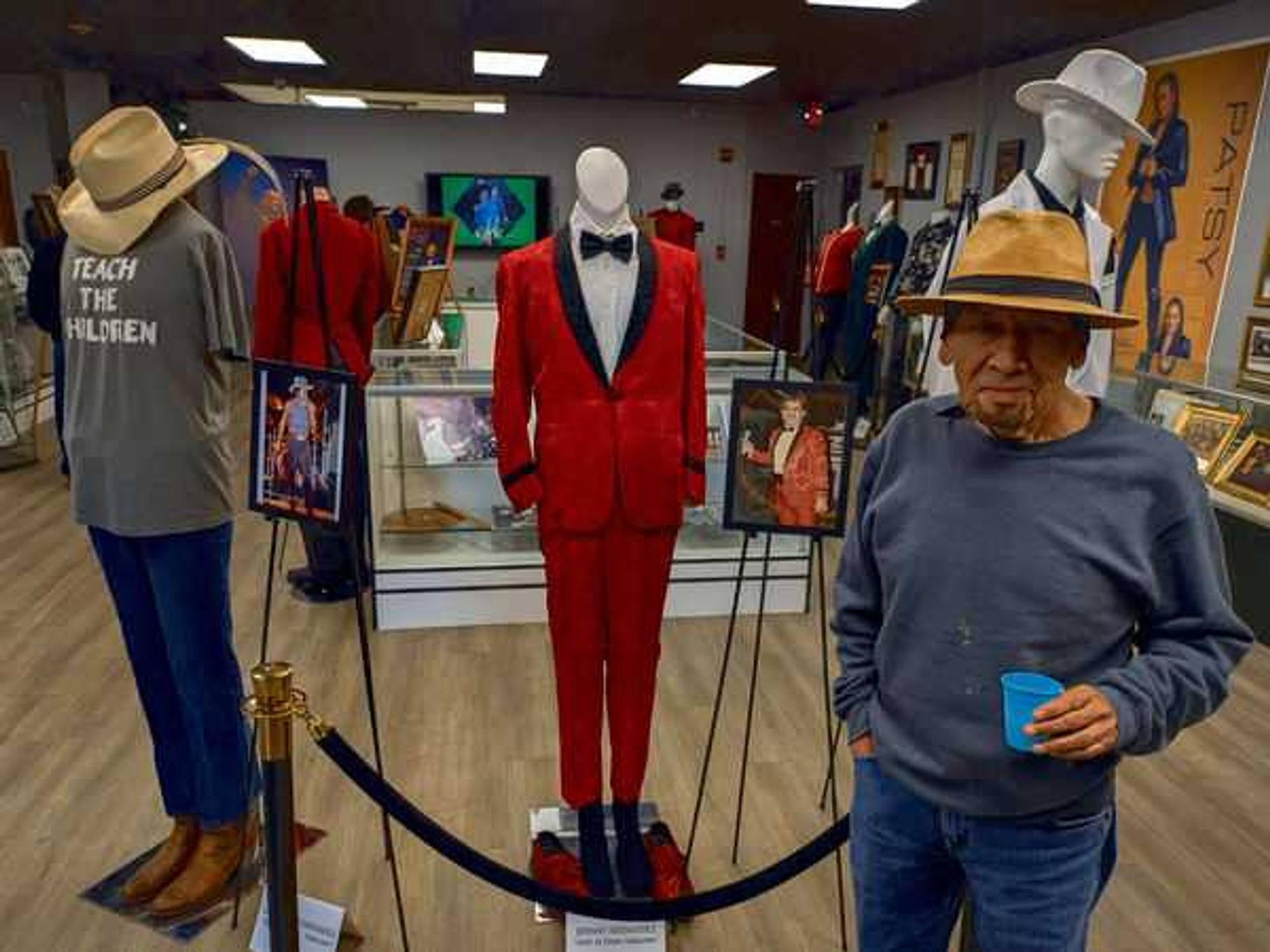Texas Tribune Festival
Winds of change (and some hot air) during last day of Texas Tribune's "festivalof ideas"
 Different is Better: Innovations in Public Education w/ Mike Feinberg, StevenFarr, Jeanne Goka & mod. Norma Cantú
Different is Better: Innovations in Public Education w/ Mike Feinberg, StevenFarr, Jeanne Goka & mod. Norma Cantú Different is Better: Innovations in Public Education w/ Mike Feinberg, StevenFarr, Jeanne Goka & mod. Norma Cantú
Different is Better: Innovations in Public Education w/ Mike Feinberg, StevenFarr, Jeanne Goka & mod. Norma Cantú The Case Against Obamacare with U.S. Rep. Michael Burgess with mod. ScottBraddock
The Case Against Obamacare with U.S. Rep. Michael Burgess with mod. ScottBraddock The Case Against Obamacare with U.S. Rep. Michael Burgess with mod. ScottBraddock
The Case Against Obamacare with U.S. Rep. Michael Burgess with mod. ScottBraddock
Legalize marijuana to secure the border, meet once a year on the state budget, look for a primary challenger to President Obama and encourage the HPV vaccine while side-stepping a mandate.
Myriad such ideas blew across the University of Texas campus this weekend, at times resembling the winds of change and at others just a bunch of hot air.
The first annual Texas Tribune Festival, which ended Sunday evening, was called a “festival of ideas” by some. Sponsored (with help) by the Tribune and run by volunteers who included the SXSW crew, the festival brought more than 100 presenters to the UT campus over two days, including a handful of Congress members, a couple of ambassadors, border police officers, corporate communicators, activists, oil and gas champions, a former Obama health advisor, a U.S. senator, a former Bush education cabinet member and other movers and shakers from across the state.
The panels focused on four topics: Education; race and immigration; health and human services; and energy.
Did they break any big news or make any major headlines? Not so much, and Tribune Editor and CEO Evan Smith always said he didn’t know that they would. But that really wasn’t the purpose. The purpose was apparently an exchange of ideas, a continuing of the dialogue — networking, updating and learning.
And there certainly was all of that.
The Tribune’s own live blog of all four tracks on both days is here. But here are some of the highlights:
- It’s rare that you see abortion and education cross paths in the sphere of public discourse, so everyone got their Twitter fingers ready when conservative (and departing) State Board of Education member Don McLeroy stood up during a presentation called “In Defense of Planned Parenthood” and asked president (and Ann Richards’ daughter) Cecile Richards when she thinks life begins. Her answer: Life begins at 30. Laughter all around. It was easily one of the most well-attended presentations of the festival, and McLeroy’s question encapsulated perfectly why that was so: Planned Parenthood became the whipping boy of abortion opponents this year, with Republicans rabidly defunding it every chance they got in the name of stopping tax dollars from going to abortions. Only 3 percent of Planned Parenthood’s activities go to abortions, though that’s rarely acknowledged by the politicians who like to demonize PP in their speeches, and yet most of its funding has been cut on both the state and national levels. PP also provides health screenings and birth control—the number one prescription drug purchased by American women.
- T. Boone Pickens, the Dallas entrepreneur who always has interesting ideas on energy, also has some interesting ideas on politics. Namely, that President Obama will probably draw a Democratic primary opponent. Now, those of you unfamiliar with politics may not think that this is an unusual idea, but in reality it would be a huge thing if Obama drew a Democratic primary opponent. It's something sitting presidents just don’t have to worry about it, typically — not only because the challenger isn't likely to win, but because the president would emerge from a bruising primary election with battle scars, a bloody nose and plenty of fodder for critics in November.
- During a Sunday panel on border security, the very conservative Scott Braddock of Texas State Networks called illegal immigrants “criminals,” which drew the ire of an audience member who pointed out that immigrants who are in the country without papers are actually violating civil law, not the penal code.
- That same panel featured a lively discussion of whether legalizing marijuana would help ease cartel traffic and drug violence. El Paso Sen. Jose Rodriguez said it was worth looking at, but U.S. Rep. Silvestre Reyes, who used to be a border patrol agent, took issue with that, saying it never worked. They’re both Democrats, which just illustrates the complexity of that issue and how those ideas cross party lines. Republicans, incidentally, often support legalization based on their views on limited government.
- Sen. Dan Patrick, R-Houston, suggested during an education panel that the Legislature meet once a year on the budget, not every other year. That comment drew support from Rep. Donna Howard, an Austin Democrat who probably opposes the very conservative Patrick on just about everything else he has ever said.
- One of the most spirited panels of the session, called “How to Pay for Public Education,” included Scott McCown, the director of the progressive Center for Public Policy Priorities. At one point, Patrick said the way to pay for public education is to raise the sales tax and lower the property taxes. McCown said that penalized low-income people.
- Steve Murdock, former director of the U.S. Census Bureau as well as former state demographer (both under George W. Bush), threw out some explosive numbers during his presentation on immigration and the state’s changing demographics: The voting age population in Texas is one-third Hispanic and one half Anglo. For the under-18 set, those numbers switch: Half Hispanic, and one-third Anglo. By 2050, only the 65-and-over population will be majority Anglo. He ended with a quote from George Bernard Shaw, just to prove what a numbers nerd he actually is: “The mark of a truly educated man is to be moved deeply by statistics.” Texas state Reps. Jose Aliseda and Veronica Gonzales almost came to blows during a panel on how well Hispanics fared during the Legislature. Plenty of good discussion there, but somehow gambling came up and Aliseda slammed it — prompting Gonzales to thank him for being the moral guardian for everyone.
- Tom “Smitty” Smith of Public Citizen told the audience at an energy panel that Texas is No. 1 in greenhouse gas emissions, and would be seventh in the world if it were a nation. There ensued a discussion on greenhouse gases that we’ve heard before.
- Republican Texas Congressman Michael Burgess and former senior Obama healthcare reform advisor Neera Tanden squared off over healthcare reform in two separate panels. Burgess’ was titled “The case against Obamacare” and Tanden's was a keynote in which she said that it was a “fundamental error to give so much oxygen to Congress" on federal health reform.
- The University of Texas-El Paso President Diana Natalicio earned applause every time she hammered on her point that at-risk and low-income kids should have the same rights to education that their higher-income counterparts have. "We can't focus so much on graduation rates that we stop admitting at-risk youth." On the same panel, Texas A&M President R. Bowen Loftin said that every $1 invested in education returns $18 in the long run to the economy.


 The newly opened Totally Tejano Hall of Fame and Museum includes a growing collection of memorabilia. Photo by Edmond Ortiz
The newly opened Totally Tejano Hall of Fame and Museum includes a growing collection of memorabilia. Photo by Edmond Ortiz